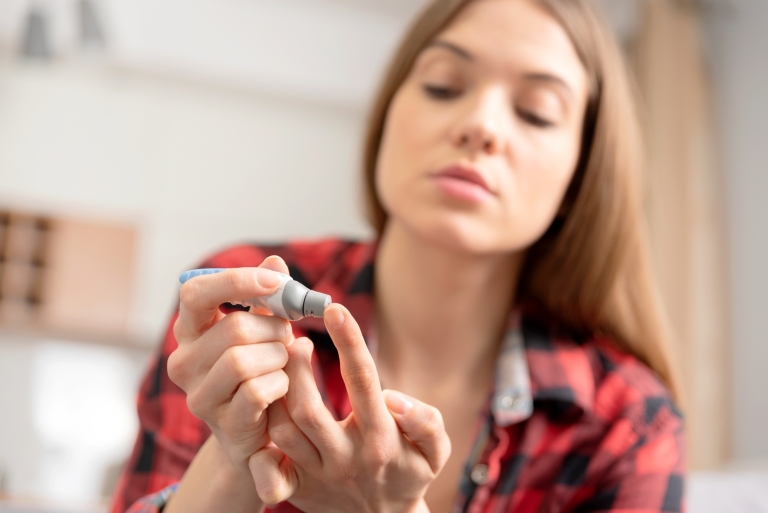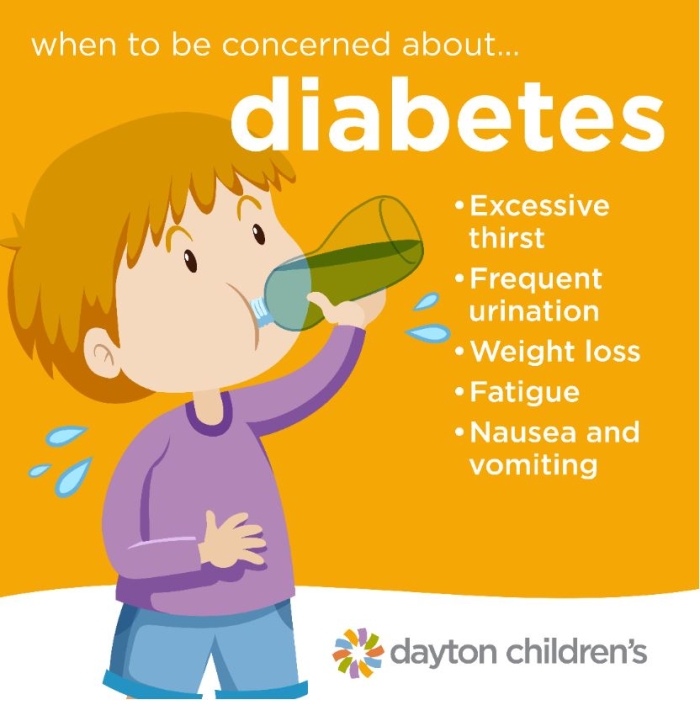when to be concerned about diabetes

in this article:
- What are the symptoms of diabetes?
- How is diabetes treated?
- When should I be concerned about diabetes?
Are you noticing signs of frequent thirst or unexplained weight loss in your child? Wondering if it could be a sign of type 1 diabetes? We sat down with Paul Breyer, MD, chief of endocrinology at Dayton Children’s, to learn more about type 1 diabetes, its symptoms and when to be concerned.
what causes type 1 diabetes?
Type 1 diabetes occurs when the body’s immune system destroys cells in the pancreas that produce the hormone called insulin. Without insulin, glucose (blood sugar) can’t get into the cells. It stays in the blood, which leads to high blood sugar. Having too much sugar in the blood causes increased urination and increased thirst. Long-term high blood sugar isn’t healthy and can cause problems with a child’s eyes, kidneys, nerves and other serious complications.
what is the difference between type 1 and type 2 diabetes?
Type 1 diabetes is a chronic condition where the pancreas produces little or no insulin. Certain people are essentially predisposed (likely) to having type 1 diabetes due to a dormant (non-active) gene that becomes activated when the body is under some kind of stress. Any kind of virus, like the flu, can be a stressor. Type 1 is typically diagnosed in childhood, but can affect adults, too.
Type 2 diabetes is a chronic condition affecting how the body processes glucose. While type 2 diabetes can affect children, it is typically a disease that impacts adults. With type 2, the pancreas still makes insulin, but the insulin doesn’t do its job as well in the body.
what are the symptoms of diabetes?

Most of the time, children are diagnosed with type 1 diabetes after a parent, caregiver or teacher notices symptoms like:
- Excessive thirst
- Frequent urination
- Weight loss
- Fatigue
- Nausea or vomiting
how is diabetes treated?
There is no cure for this disease. But children with type 1 diabetes can live full and active lives with the help of intensive insulin therapy, which involves administering shots or using an insulin pump to deliver insulin several times a day. They also need to pay a little more attention to what they eat and do than kids without diabetes. To feel their best, kids with type 1 should eat a healthy, balanced diet, check blood sugar levels often and get regular exercise.
when should I be concerned about diabetes?
If your child is exhibiting symptoms of extreme thirst, excessive hunger and frequent urination a visit to their pediatrician/primary care doctor is usually enough. The doctor will likely do a urine test and find glucose in the urine. At that point, they may refer your child to a pediatric endocrinologist, a specialist who cares for kids with diabetes and hormone and metabolic disorders.
If your child has experienced the first three symptoms and is nauseous or throwing up, it is time for a visit to an emergency department. Once a child with symptoms of diabetes starts throwing up, it’s a sign they have acid in their blood, which is very dangerous. They could be in diabetic ketoacidosis (DKA) and would require immediate attention.
If it is recommended that your child be seen by a specialist in endocrinology, you can schedule an appointment online with a Dayton Children’s endocrinologist.
here when you need us
Whether you’re looking for the right provider, ready to make an appointment, or need care right now—we’re here to help you take the next step with confidence.



